The Cheerios are super-tasty. They also contain some benefits due to some vitamins and minerals. However, for guinea pigs, they still have more side-effects.
Guinea pigs can’t eat Cheerios or any other cereals. This type of food is not recommended for the guinea pigs’ health and they are also a potential choking hazard. The Cheerios contain a lot of sugar, calories, fat, and calcium, and they are flavored in many ways. They are not a suitable food for guinea pigs.
Table of Content
Nutrition Facts of Cheerios
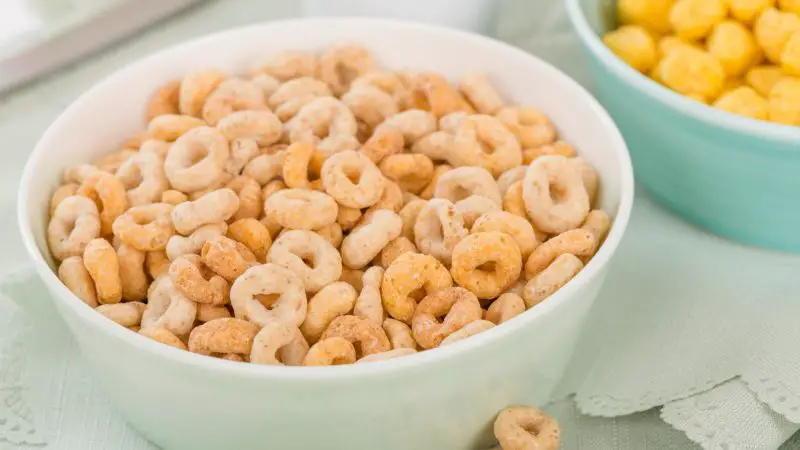
The following are nutrition facts of the Cheerios. A serving of 3 oz (100 g) of Cheerios contains:
- Energy – 372 kcal
- Protein – 12.4 g
- Total lipid (fat) – 6.6 g
- Carbs – 73.2 g
- Dietary fiber – 10.01 g
- Sugars – 4.5 g
- Calcium – 357 mg
- Iron – 28.9 mg
- Magnesium – 114 mg
- Phosphorus – 357 mg
- Potassium – 633 mg
- Sodium – 497 mg
- Zinc – 13.4 mg
- Copper – 0.387 mg
- Selenium – 24.9 µg
- Vitamin C – 21.4 mg
- Vitamin B-12 – 6.77 µg
- Vitamin B-6 – 1.79 mg
- Vitamin A – 990 µg
- Vitamin E – 0.41 mg
- Vitamin K – 2 µg
- Thiamin – 1.3 mg
- Riboflavin – 0.1 mg
- Niacin – 17.9 mg
- Lutein + zeaxanthin – 159 µg
Risks to Consider When Feeding Cheerios to Guinea Pigs
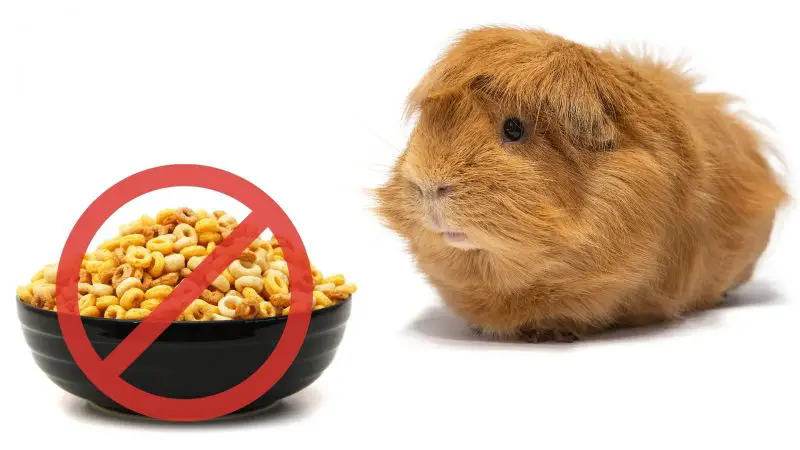
Bladder and Kidney Stones
One of the risks of cheerios is that they have calcium and sodium. Calcium creates strong and healthy bones and bone tissues. But, for guinea pigs, excess calcium is a bad thing. The residue of this mineral gets stuck somewhere in the urinary system, creating bladder or kidney stones. This can be fatal because often it leads to renal failure and there is no going back from that.
Otherwise, with bladder and kidney stones, the urination is painful. The pain appears in the stomach, and in some cases, it is accompanied by even blood in the urine. Also, the level of sodium (salt) in cheerios is a bit high. It can make guinea pigs feel more thirsty or bloated. It’s common to see bloating, thirst, or water retention if too much salt is consumed.
Stomach Pains
Cheerios have fibers that are good for digestion. But, sometimes, too much fiber can have a counter-effect. With excess fiber, even humans notice some side effects. For example, the guinea pigs that have ingested too much fiber have side effects, such as pain in the stomach, loose stool, flatulence, gases, bloating, and similar.
Also, Cheerios are processed food, which means it has some added sugars and other additives that aren’t good for guinea pig’s stomach. Their digestive system will have difficulties digesting processed food, and that can lead to serious stomach pains.
Weight Problems
Also, there is added sugar in Cheerios. This type of sugar is definitely not good for the guinea pigs. Even if the guinea pig likes to eat Cheerios (or other cereals), it shouldn’t be given to them because they can cause weight gain, obesity, or even diabetes.
Choking Hazard
Cheerios have a hard texture, and they can be a serious choking hazard to guinea pigs. Even though guinea pigs have strong teeth, cheerios can still get stuck between their teeth. So, it’s very important to avoid this type of food because they present a risk of choking for guinea pigs.
Decreased Growth
There are huge amounts of iron in Cheerios. Some researchers have reported that huge amounts of this mineral can be very harmful and even toxic to guinea pigs. If guinea pigs eat food rich in iron, excess iron could induce decreased growth, tissue damage, and even death.
Cardiovascular Problems
Cheerios are processed food with added sugars, salt, and oil. These ingredients may increase inflammation in guinea pigs, which increases the risks of heart diseases. Sodium especially isn’t good for blood pressure. Also, Cheerios are very caloric and contain too much fat, which is very bad for blood pressure and blood vessels.
More Information About Guinea Pigs and Cheerios
Can Guinea Pigs Eat Honey Nut Cheerios?
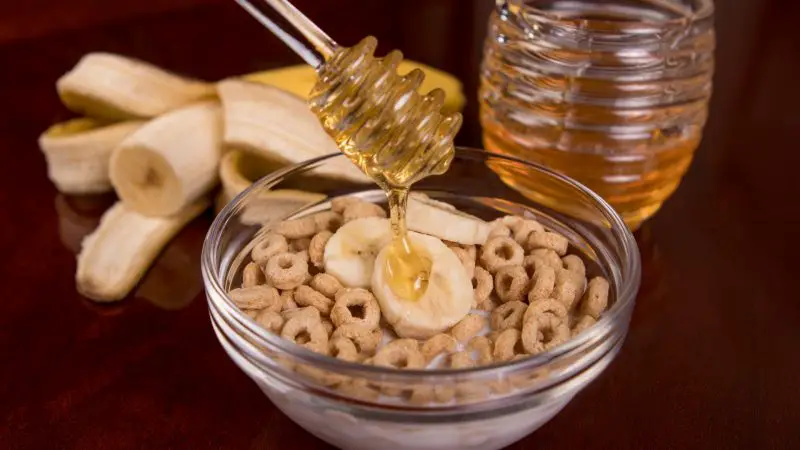
Guinea pigs can’t eat Honey Nut Cheerios because this type of Cheerios is even more dangerous for them. Honey Nut Cheerios contain added honey, and guinea pigs can’t eat honey as well.
Also, Honey Nut Cheerios are processed food with added sugars and honey and as we have said, processed food can upset the guinea pig’s stomach, increase blood sugar, and lead to weight gain.
Can Guinea Pigs Eat Multigrain Cheerios?
Multigrain Cheerios are types of Cheerios that are made of different whole grains with added sugar, vitamins, and minerals. However, guinea pigs can’t eat Multigrain Cheerios as they are also too caloric and fattening for guinea pigs. So, it’s better to avoid Multigrain Cheerios in guinea pig’s diet.
Can Guinea Pigs Eat Plain Cheerios?
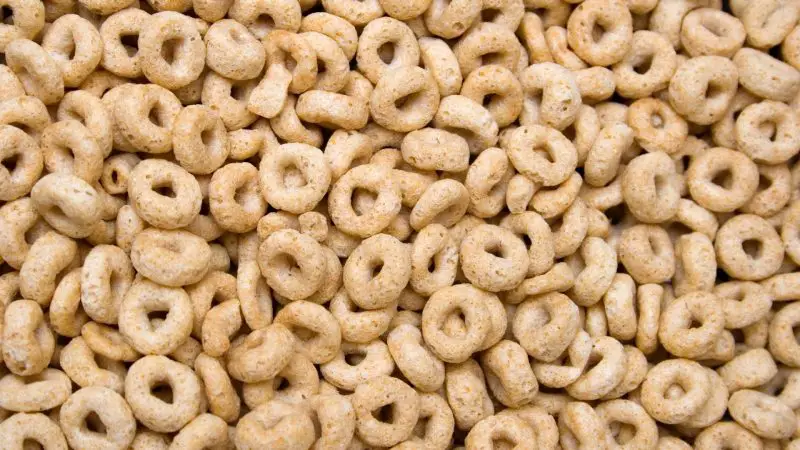
The plain type of Cheerios has very little sugar, but still, they are not acceptable for guinea pigs. So, guinea pigs can’t eat plain Cheerios. These Cheerios still have many downsides for guinea pig’s digestive system and overall health. There are many other treats that you can feed your guinea pigs. They will enjoy hay, different fruits, and vegetables more than any type of Cheerios.
Quick Facts on Cheerios
- Cheerios were produced for the first time in 1941.
- The original name for Cheerios was Cheerioats.
- Cinnamon Nut Cheerios was the first flavor for these cereals, while the second was Honey Nut Cheerios.
- There are around 20 different types of Cheerios.
- Cheerios are completely GMO and gluten-free.
- General Mills produces around two hundred million pounds of Honey Nut Cheerios every year.
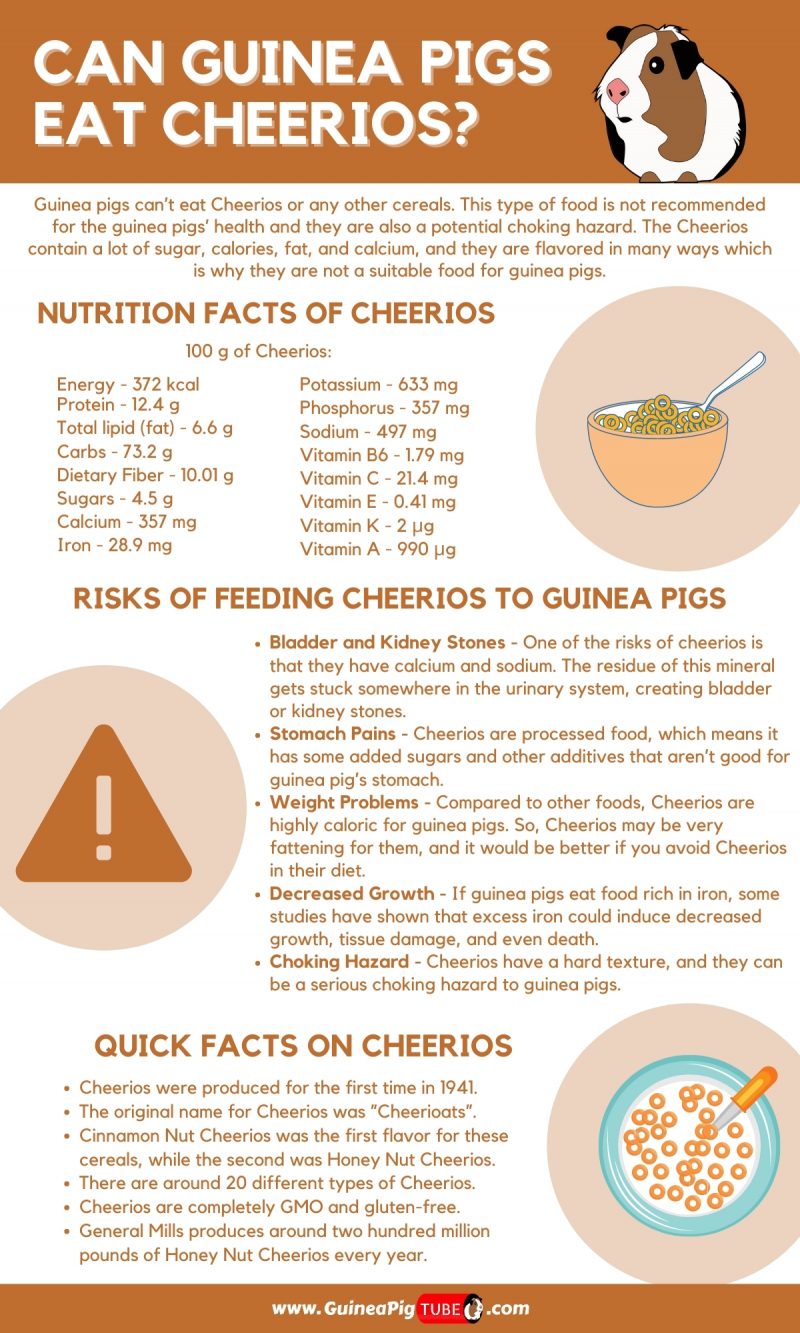
We have also made a full list of foods that guinea pigs can and can’t eat (150+ Types of Foods). Be sure to also check our recommended products page for everything you will ever need to assure a happy life for your guinea pigs. Hope this information was helpful and you have found the answer you were looking for.
List of Sources
Nutrient Requirements of Laboratory Animals: Fourth Revised Edition
The Effects of Diet on Anatomy, Physiology and Health in the Guinea Pig
Nutrient Interrelationship of Ascorbic Acid and Iron in Rats and Guinea Pigs Fed Cereal Diets
